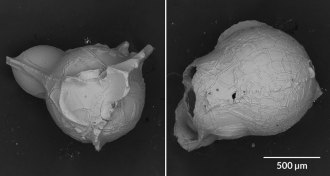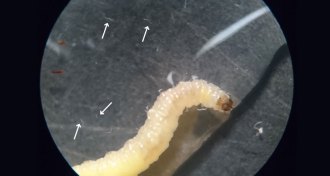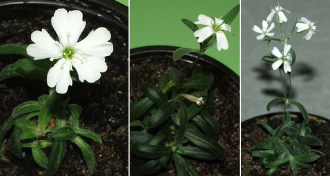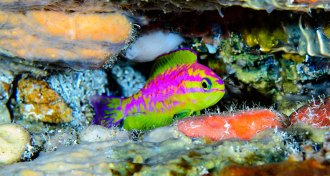Notebook
-
 Environment
EnvironmentCar tires and brake pads produce harmful microplastics
Scientists surveyed tiny airborne plastics near German highways and found that bits of tires, brake pads and asphalt make up most of the particles.
-
 Earth
EarthThese tiny, crackly bubbles are a new type of volcanic ash
Scientists have identified a new type of volcanic ash made up of millimeter-long spheres with a crackled surface.
-
 Animals
Animals50 years ago, atomic testing created otter refugees
Nuclear testing on the island of Amchitka caused hundreds of otters to be rehomed 50 years ago. Those hundreds have grown into thousands.
-
 Ecosystems
EcosystemsHow researchers flinging salmon inadvertently spurred tree growth
Scientists studying salmon in Alaska flung dead fish into the forest. After 20 years, the nutrients from those carcasses sped up tree growth.
-
 Animals
AnimalsWhile eating, these tiny worms release chemicals to lure their next meal
As they eat insects, one nematode species releases chemicals that attract more insect prey.
By Yao-Hua Law -
 Health & Medicine
Health & MedicineAn eye disorder may have given Leonardo da Vinci an artistic edge
An analysis of portraits believed to portray Leonardo da Vinci offers evidence that the artist had exotropia, in which one eye turns outward.
-
 Health & Medicine
Health & Medicine50 years ago, the safety of artificial sweeteners was fiercely debated
Scientists are still learning more about the health effects of chemical sweeteners
-
 Animals
AnimalsHow nectar bats fly nowhere
Exquisitely sensitive tech makes first direct measurements of the forces of bat wingbeats.
By Susan Milius -
 Tech
TechSelf-driving cars see better with cameras that mimic mantis shrimp vision
A new type of camera that sees in polarized light across a wide range of light intensities could help make self-driving cars safer on the road.
-
 Plants
Plants50 years ago, a 550-year-old seed sprouted
Old seeds can sprout new plants even after centuries of dormancy.
-
 Astronomy
AstronomyWe may not have found aliens yet because we’ve barely begun looking
A new calculation says SETI searches have combed the equivalent of a hot tub out of Earth’s oceans looking for extraterrestrial intelligence in space.
-
 Animals
AnimalsThis new fish species displays a splash of highlighter hues
Researchers stumbled upon a new species of coral reef fish with spectacular coloration and a unique habitat.